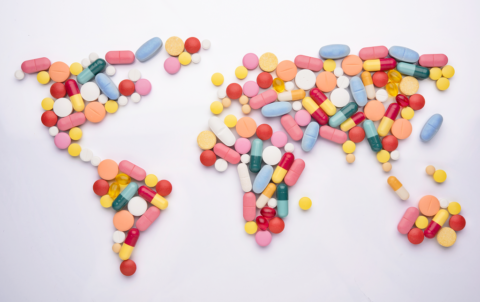Our application to the Essential Medicines List
Efforts to improve access to MS treatments continue
Last updated: 26th June 2023
In December 2018, MSIF applied to the World Health Organization (WHO) to add three MS treatments to its 2019 Essential Medicines List (EML).
On Tuesday 9 July, the WHO announced that it will not be adding any of these treatments to the list. The WHO Expert Committee recognised the public health need for effective and affordable treatments for MS and requested a revised submission in two years’ time.
Whilst acknowledging that this news is disappointing for the MS community around the world, we are pleased with the focus it places on making the right MS treatments available at the right time. This recognition demonstrates the progress made by the MSIF movement in putting MS on the global agenda.
It has been an extremely useful opportunity for MSIF to build a movement of organisations and supporters who we will now work with to continue on our journey towards improving access to medicines for people with MS.
In our application, we prioritised three different disease modifying therapies (DMTs) to be included on the WHO’s Essential Medicines List: glatiramer acetate, fingolimod and ocrelizumab. These were based on three categories of DMTs, and we argued that at least one DMT in each category should be available as a minimum for treating MS.
- Moderate efficacy/high safety DMT (e.g. interferon beta preparations, glatiramer acetate)
- Moderate to high efficacy oral DMT (e.g. dimethyl fumarate, teriflunomide, cladribine, fingolimod)
- High efficacy monoclonal DMT (e.g. natalizumab, alemtuzumab, ocrelizumab)
The WHO Executive Committee commented that the superiority of presented medicines over other therapeutic options in the outcomes considered (benefits, harms, affordability) did not clearly emerge and that they felt that off-label therapeutic options for MS were not considered in full in the application.
MSIF believes that the EML submission is a baseline that covers a large majority of people living with MS, but we also recognise that the other treatments options are effective and appropriate in the MS population.
The three DMTs put forward were chosen based on safety considerations, tolerability/liveability, monitoring needs, route of administration, licensed use in pediatric-onset and primary progressive MS and safety profile in pregnancy. Affordability was considered in relation to the availability of generic, biosimilar and/or off-label alternatives. High quality evidence for safety and efficacy should be the primary consideration under ideal circumstances.
We submitted our EML application to the WHO in collaboration with our members, the World Federation of Neurology and regional Treatment and Research in MS committees (TRIMS) in the Americas, Europe, Latin America, the Middle East, Russia and Asia. Letters of support for the application were sent from over 20 organisations across the world.
We would like to take this opportunity to thank everyone who plays a part in the MSIF movement for their collaboration with us and joint efforts to widen access to MS treatments worldwide.
The WHO Expert Committee welcomes a revised application, so we will now reconsider our approach, continue our discussions with the WHO and identify the next steps in relation to the Essential Medicines List and towards achieving our goal of improving access to treatments for people affected by MS around the world.
